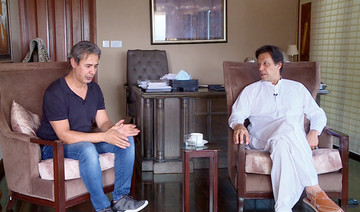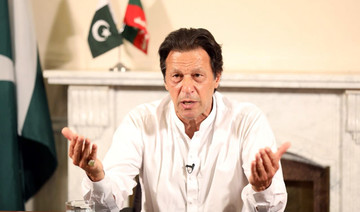KARACHI: Imran Khan’s former teammates and rivals have congratulated the World Cup winner after his party won the most seats in Pakistan’s election.
The Election Commission said Friday that Khan’s Pakistan Tehreek-e-Insaf (PTI) party enjoyed a strong lead over the outgoing Pakistan Muslim League-Nawaz (PML-N) but short of an overall majority.
Khan will likely need to enter into a coalition to form a government.
“Congratulating the new Prime Minister of our country,” tweeted ex-bowler Wasim Akram, who was part of Pakistan’s 1992 World Cup winning side captained by Khan.
Wasim had thrown his support behind Khan, 65, in the run-up to the election.
“It was in your leadership skip @ImrankhanPTI that we became world champions in 1992. It is in your leadership that we can again become a great democratic country,” he wrote on Twitter.
Wasim’s new ball partner Waqar Younis — who also flourished under Khan’s tutelage — praised the leader-elect’s live broadcast to the nation on Thursday in which he claimed victory in the election.
“A special speech from a Great Leader..Very simple, honest and practical..Feeling so proud to be a student of such a Mentor.. Congratulations Skipper,” he tweeted.
Another member of Pakistan’s triumphant World Cup squad Ramiz Raja also lavished praise on Khan, considered one of Pakistan’s best ever all-rounders.
“Who could be a bigger and better example of a leader than Imran Khan, who as a super star had the world at his feet and yet elbow greased for 22 years to work for his objective and vision..he’s special and we are proud to have him as our Prime Minister,” Raja posted on Twitter.
Khan, who vowed to improve relations with arch-rival India in his first comments following Wednesday’s polls, also received praise from across the border.
“Imran is the epitome of setting the bar high and reaching it. Congratulations & good luck to my cricketing hero, Imran Khan!” tweeted former Indian batsman Sanjay Manjrekar, who scored a double hundred against a Khan-led Pakistan in 1989.
Ex-Indian all-rounder Kapil Dev, who was a contemporary of Khan, tipped the former right-arm fast bowler to “deliver” as Pakistani leader in a TV interview.
“It looks nice that a cricketer and one who we know is going to be the PM,” said Dev.
Current Pakistan players Mohammad Amir and Mohammad Hafeez also posted messages on Twitter.
“Congrats to @ImranKhanPTI i hope u guys will do the best for Pakistan,” tweeted Amir.
“Ma Shaa Allah (God has willed) @ImranKhanPTI U done it once again. Long marathon struggle against corruption. A man of strong belief,” wrote Hafeez.
Cricket teammates, rivals congratulate Pakistan’s Khan on vote win
Cricket teammates, rivals congratulate Pakistan’s Khan on vote win
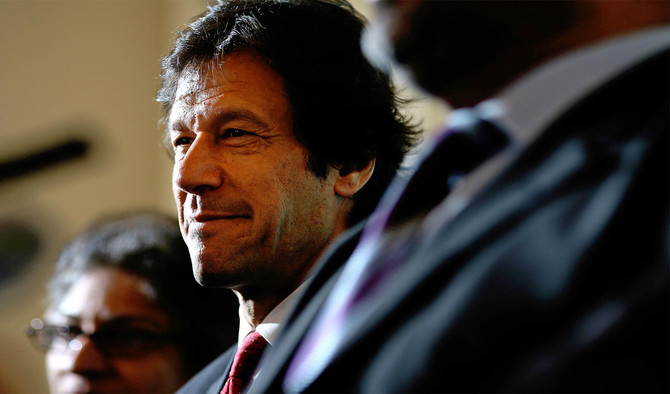
Amid privatization push, Pakistan says profit-making public entities also being considered for sale
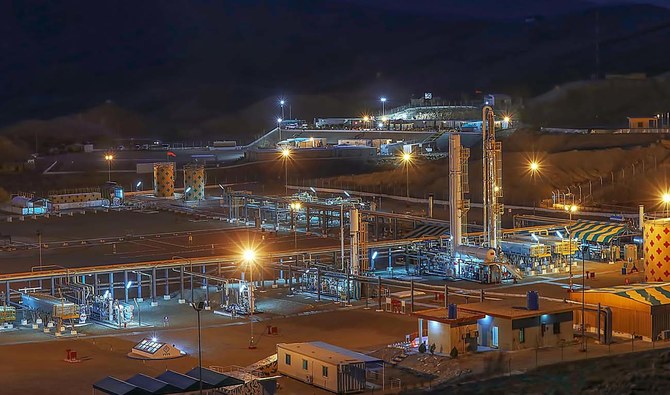
- South Asian nation is striving to deliver reforms amid talks with IMF for new bailout loan package
- Cabinet Committee on Privatization has in principle approved 24 entities for Privatization Programme
KARACHI: The office of Pakistan’s deputy prime minister said on Friday even profit-making state owned enterprises (SOEs) would be considered for privatization as the South Asian nation strives to deliver reforms amid talks with the International Monetary Fund for a new bailout package.
Under the last $3 billion bailout package from the IMF that was critical in averting a sovereign debt default last year, the lender has said state-owned entities whose losses are burning a hole in government finances would need stronger governance. Pakistan is now negotiating with the IMF for a larger, longer program for which it must implement an ambitious reforms agenda, including the privatization of debt-ridden SOEs.
“CCOP emphasized that even the SOE making profits shall be considered for privatization,” a statement from the deputy prime minister’s office said, referring to a meeting of the Cabinet Committee on Privatization (CCOP).
Among the top profit-making SOEs are Oil and Gas Development Company Limited, Pakistan State Oil Company Limited, Pak Arab Refinery Company, Pakistan Petroleum Limited, the National Bank of Pakistan, National Power Parks Management, the Government Power Holding Limited, Mari Petroleum and Neelum Jhelum Hydro Power Limited.
“CCOP, while approving 24 entities for the Privatization Programme, in-principle, for the time being, directed Ministry of Privatization to deliberate the phasing of each entity in consultation with the respective Ministries,” the statement added.
Among the main entities Pakistan is pushing to privatize is its national carrier, PIA. The government is putting on the block a stake ranging from 51 percent to 100 percent.
The disposal of the flag carrier and other entities like a sprawling steel mill in Karachi is a step that past elected governments have steered away from as it is likely to be highly unpopular, but progress on the privatization will help cash-strapped Pakistan pursue further funding talks with the IMF.
‘Asia’s largest nursery’ in Pakistan’s Pattoki awaits government support to bolster Gulf exports
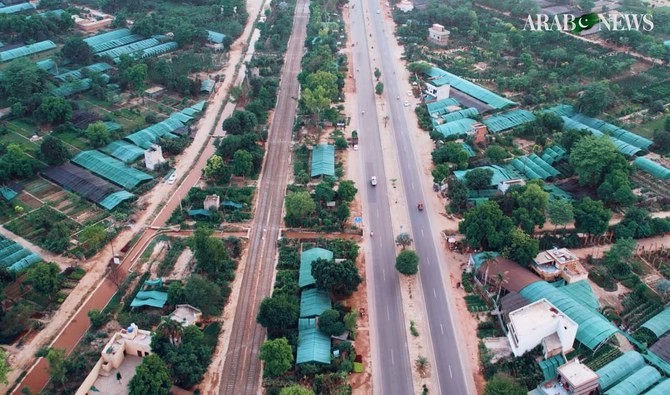
- Agriculture department says no other place worldwide where nurseries sprawl whole city
- Plant exporters urge government to lift ban on import of seeds and new plant varieties
Pattoki, PAKISTAN: From a bird’s-eye view, dozens upon dozens of nurseries can be seen dotting the city for several kilometers, featuring colorful flowers, massive trees and decorative plants. Around them, hundreds of workers flit about planting and trimming plants and plucking weed from the ground and out of clay pots.
This is a scene from Pattoki, a city in the Kasur district of Pakistan’s most populous Punjab province, that exporters and government officials say is the largest nursery market in Asia. Spread over a thousand hectares, the market employs around 100,000 people directly or indirectly.
“This [nursery] is spread over ten villages and each village’s population is estimated to be around 10,000 people,” exporter Lala Shaukat told Arab News in Pattoki last week. “This is a profitable business and people are earning well from it, and this [Pattoki] has become Asia’s biggest [nursery] market.”
“Pattoki is indeed Asia’s largest nursery due to its sprawl at a single place, in one city, and this is the biggest market in Pakistan from where the plants and flowers are not only supplied across the country, but also exported to Saudi Arabia, UAE and other Gulf countries,” said Dr. Basharat Saleem, a deputy director at the Punjab general agriculture directorate.
In Pattoki, an average nursery is spread over ten hectares with 30-40 gardeners taking care of around 350 types of plants and flowers that are sold both locally and exported.
“Around 350 varieties [of different plants] are available with us [at this nursery], including palm trees and shadow trees,” Bilal Ahmed, a nursery owner, told Arab News. “Then there are fruit plants and flower plants which are available with us in abundance.”
GULF EXPORTS
Exporter Sheraz Ali said Pakistan’s plants and flower exports to Gulf countries had increased since 2018 from around 15 containers yearly to 250 in 2024.
“In one container, around 10,000-12,000 plants are going [exported] and its value is around 3 million ($10,782) to 3.5 million rupees ($12,578),” Ali told Arab News. “In one acre, an average of 40,000-50,000 plants [are being planted].”
The plant protection department agreed with Ali, saying at least 250 containers were shipped yearly, with the Gulf region being a major destination.
“The exports of our plants and flowers have registered a significant increase in the Gulf region in the last couple of years, and the exporters’ number of 250 shipping containers for this year seems to be true,” said Dr. Khalid Zafar, a deputy director at the plant protection department, who said exact export numbers were not readily available with his department at the moment.
Saudi Arabia and the UAE were the closest destinations to Pakistan where shipments could reach within a week, exporters said. .
“We have been focusing on roses as per their demand to export them to bring dollars to our market, so that it could play a role in our country’s progress,” Ali added.
For consignments that have to be exported, plants and flowers are transferred from clay pots to a soilless medium known as coco peat. This is a necessary step as globally exporting clay from one country to another is banned for fear that soil could transfer viruses and bacteria.
“First of all, to export to Saudi Arabia, Dubai and all these Arab countries, there should be soilless media as you cannot transfer clay from one country to another because it may contain viruses, bacteria and there is a huge chance of the spread of diseases so you can make it soilless,” Ali explained.
“So we import coco peat from Sri Lanka to make it soilless and then use it in plants after taking it through a certain process.”
“GOVERNMENT SUPPORT”
Pakistani traders and growers, however, said despite the nurseries and flower markets being a “billion-dollar industry,” farmers were struggling to grow new varieties of plants and flowers and bag more orders from abroad.
“Dubai, Saudi Arabia, Kuwait, Oman, it is a huge market for us. I am exporting to only one country, Dubai [UAE], and the quantity to other countries is negligible,” exporter Shaukat, who has been in the business for 30 years, said. “We need the government’s assistance to boost exports. The government should cooperate with us and our exports can witness a huge increase. Unless we are presented as an industry, we cannot increase our exports.”
Shaukat said the government’s decision to ban the import of plants and seedlings to Pakistan had damaged business because growers could not bring in new varieties of plants.
“The world demands new varieties of [plants] as people don’t like the fifty-year-old variety,” Shaukat told Arab News.
Ahmed, the nursery owner, agreed that government support and incentives were key to the industry’s future growth.
“This is a billion-dollar industry in Pakistan and there is no focus of the government or any institution on it,” he said as he walked through a row of plants.
“If there is focus, this billion-dollar industry can earn huge revenue for both the government and farmers.”
Pakistan working to issue domestic green sukuk bonds by December — finance minister
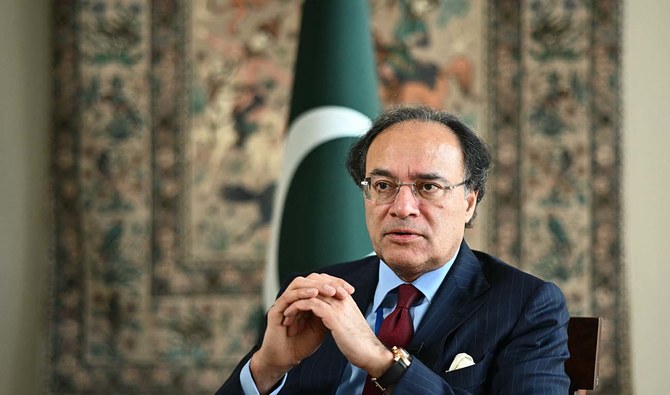
- Proceeds of green bonds used to finance climate change mitigation, adaptation and environmental projects
- According to recent World Bank study, Pakistan faces potential annual GDP losses of up to 1 percent due to climate-related risks
KARACHI: Federal Minister for Finance and Revenue Muhammad Aurangzeb said on Friday the Pakistan government was working to issue domestic green sukuk bonds by December 2024 to fund environmentally sustainable infrastructure projects.
The green sukuk is a Shariah-compliant interest-free bond in which instead of interest, investors receive an agreed share of the profits generated by the pool of underlying assets, which are partially owned by investors. Proceeds of green bonds are used to finance climate change mitigation and adaptation, and environmental projects.
“The government is working on issuing domestic green sukuk bonds by December 2024 to finance sustainable development projects,” Aurangzeb said as he delivered an online keynote speech at the UK-Pakistan Green Investment Forum, organized by the British High Commission in Pakistan.
In his address, the finance minister emphasized Pakistan’s commitment to addressing climate change and promoting green investment opportunities, and highlighted Pakistan’s vulnerability to the adverse effects of climate change, despite its low contribution to global greenhouse gas emissions.
According to a recent World Bank study, Pakistan faces potential annual GDP losses of up to 1 percent due to climate-related risks.
Acknowledging a significant funding gap in adaptation, resilience, and mitigation projects and the need for a better portfolio of green investment projects, the minister emphasized Pakistan’s reliance on the private sector for support in this regard and highlighted the government’s efforts to enhance investor confidence in bankable green opportunities.
He also outlined Pakistan’s plans to utilize innovative financing instruments like green sukuk to raise international climate finance.
Pakistan ranks among the top 10 countries worldwide most affected by climate change and natural disasters.
Pakistani satellite relays first images of moon from lunar orbit

- ICUBE-Qamar was launched aboard China’s Chang’e-6 probe on May 3
- The Chinese probe is tasked with landing on the far side of the moon
ISLAMABAD: Pakistan’s first satellite, ICUBE-Qamar (ICUBE-Q), has successfully beamed back first images of the moon, the Institute of Space Technology (IST) in Islamabad said on Friday, days after it entered the lunar orbit.
The ICUBE-Qamar satellite carries two optical cameras to image the lunar surface and weighs around 7kg. Cubesats are tiny box-shaped satellites that are mainly launched into low Earth orbit to observe the Earth, test new communications technology, or perform miniature experiments.
The satellite was launched aboard China’s Chang’e-6 probe on May 3. The Chinese probe is tasked with landing on the far side of the moon, which perpetually faces away from the Earth, after which it will retrieve and return samples. China is the first country to make such an ambitious attempt.
“Exciting news from ICUBE-Q! Our satellite has captured its first images, and they’re stunning,” IST, which contributed to the satellite’s development, wrote on X.
“Check out these shots where you can see both the moon and the sun in some of the images. Stay tuned for more updates from ICUBE-Q!“
Soon after the satellite entered the lunar orbit at 1:14pm Pakistan time on Wednesday, Dr. Khurram Khurshid, the head of the electrical engineering and computer science department at the IST and a co-lead on the project, said initial tests revealed there were no complications with the cubesat’s system.
The development meant Pakistan was officially in an exclusive club of countries that had conducted deep space missions, the official added.
Around 100 students from the IST contributed to developing the satellite. Pakistan’s proposal to build the satellite was accepted by the China National Space Agency (CNSA) from plans submitted by eight member states of the Asia-Pacific Space Cooperation Organization (APSCO).
The design, development, and qualification of the ICUBE-Q satellite were spearheaded by faculty members and students of the IST in collaboration with China’s Shanghai Jiao Tong University (SJTU), with support from Pakistan’s National Space Agency, SUPARCO.
Pakistan, Gulf states in final stages of talks on Free Trade Agreement — PM Sharif
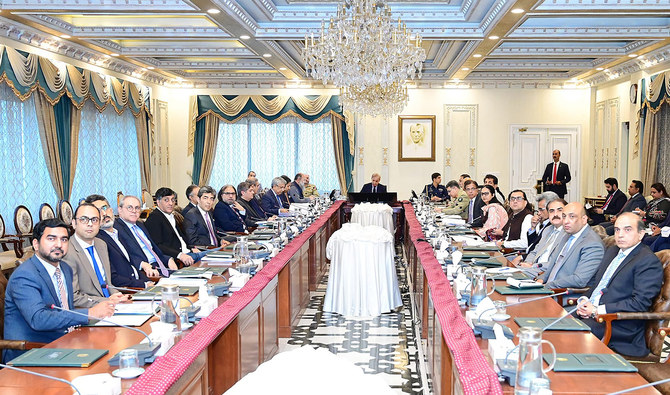
- Pakistan and the Gulf Cooperation Council signed a ‘preliminary’ FTA in September last year
- The development comes amid Pakistan efforts to boost trade to stabilize dwindling economy
ISLAMABAD: Pakistan and the Gulf states are in final stages of discussions regarding a Free Trade Agreement (FTA) between the two sides, Pakistani state media reported on Friday.
Pakistan and the Gulf Cooperation Council (GCC) signed a “preliminary” FTA in September last year, with the country’s commerce ministry calling it a “milestone in both sides’ economic cooperation.” The GCC also said the agreement represented “an important turning point in cooperation.”
In 2022, both sides held technical-level talks to examine the possibility of an FTA that could help Pakistan boost exports to the six-nation bloc, which includes Saudi Arabia, the United Arab Emirates, Bahrain, Oman, Qatar, and Kuwait.
Presiding over a meeting on the trade sector, Prime Minister Shehbaz Sharif asked the authorities to formulate trade policies with the core objective of facilitating the country’s business sector, the state-run APP news agency reported.
“In the meeting, the prime minister was told that the discussion on the Free Trade Agreement between Pakistan and the Gulf states was in the final stage and transit trade agreements with Uzbekistan and Tajikistan had already been materialized,” the report read.
During a recent Pakistan-Saudi Business Conference, according to the report, around 450 business-to-business meetings were held and the volume of e-commerce trade was witnessing a constant increase, with the enlisting of over 3,000 firms on the Pakistan Trade Portal.
Pakistan has welcomed numerous foreign officials and business delegations in recent weeks, encouraging local partnerships and asking them to explore investment opportunities across various economic sectors.
A Saudi business delegation, consisting of senior representatives from nearly 35 companies, recently concluded its visit to Pakistan, during which the delegates held several business-to-business meetings. Additionally, Prime Minister Shehbaz Sharif met with a group of Japanese industrialists, urging them to invest in Pakistan’s nascent electric car industry.
The country is also expecting the visit of Saudi Crown Prince Mohammed bin Salman later this month, hoping it would bring several billion dollars in investment.
During the meeting on the trade sector, the prime minister called for steps to promote exports of non-traditional goods and instructed authorities for immediate payment of certified duty drawbacks to exporters, according to the APP report.
He instructed officials to ensure consultation with them during the policy-making and implement the deletion policy to uplift the auto sector.
“Prime Minister Shehbaz directed the relevant ministry to devise a comprehensive strategy to scrutinize the performance of trade and investment officers posted in Pakistan’s missions abroad by rewarding the good performers and removing the incompetent ones,” the report read further.
The development comes as Pakistan seeks a fresh bailout from the International Monetary Fund (IMF) to stabilize its dwindling economy after completing its $3 billion IMF bailout deal that helped avert a default last year.
The South Asian country currently has Free Trade Agreements with China, Malaysia, and Sri Lanka, but it still needs to increase exports to other trade destinations.


